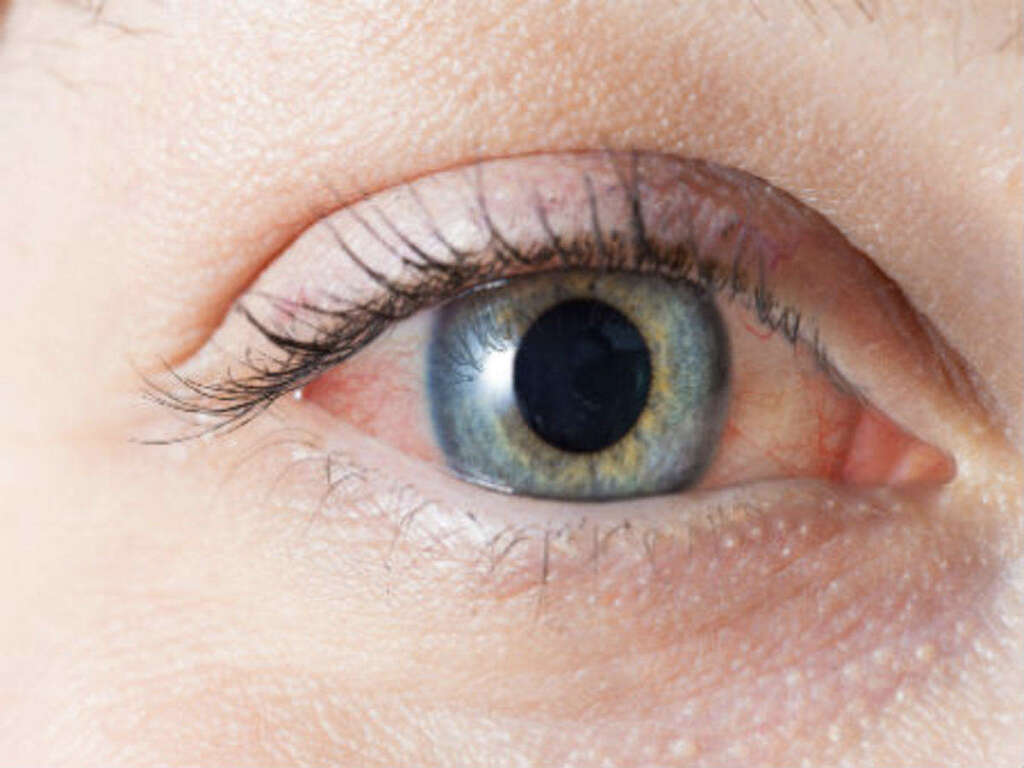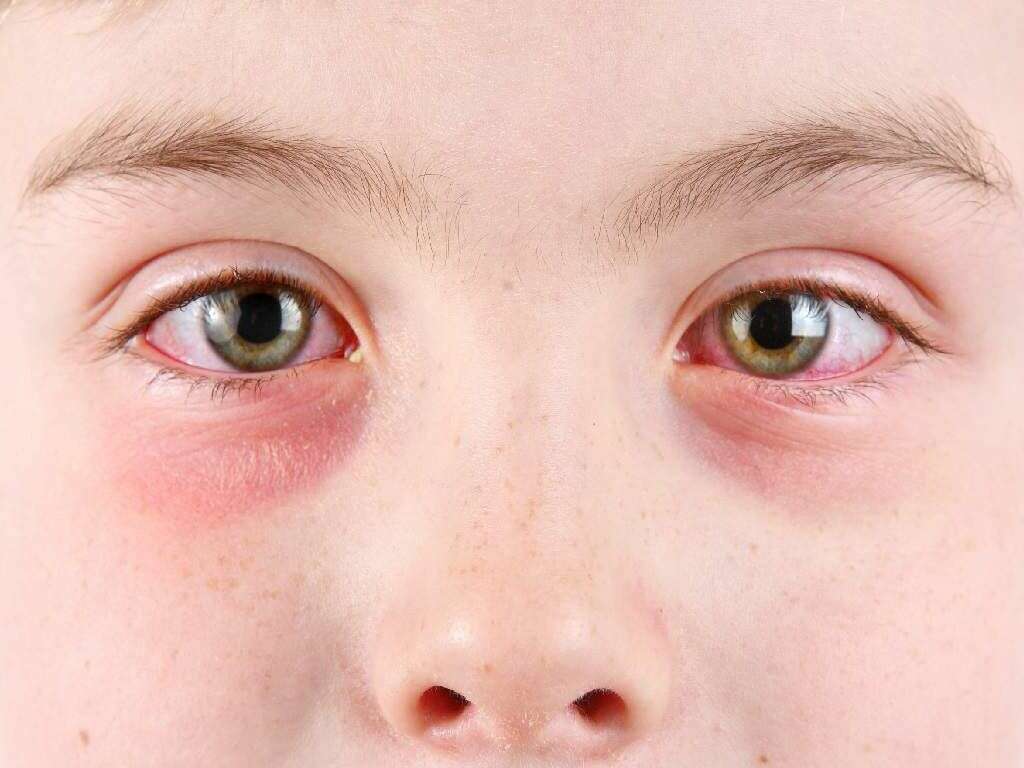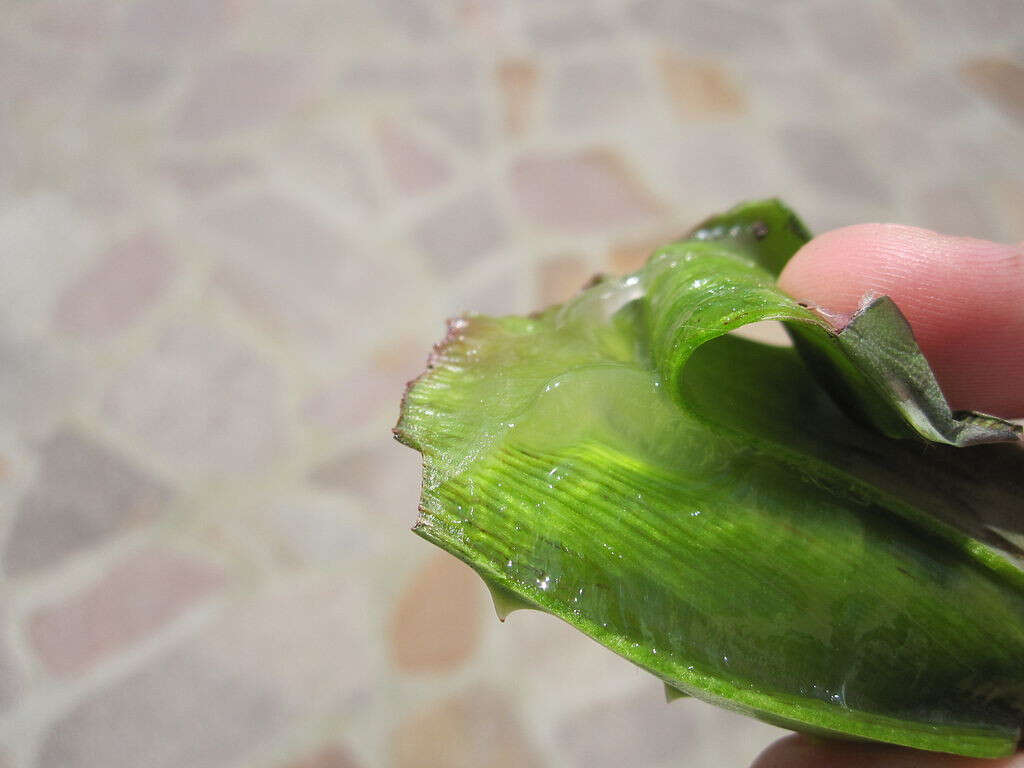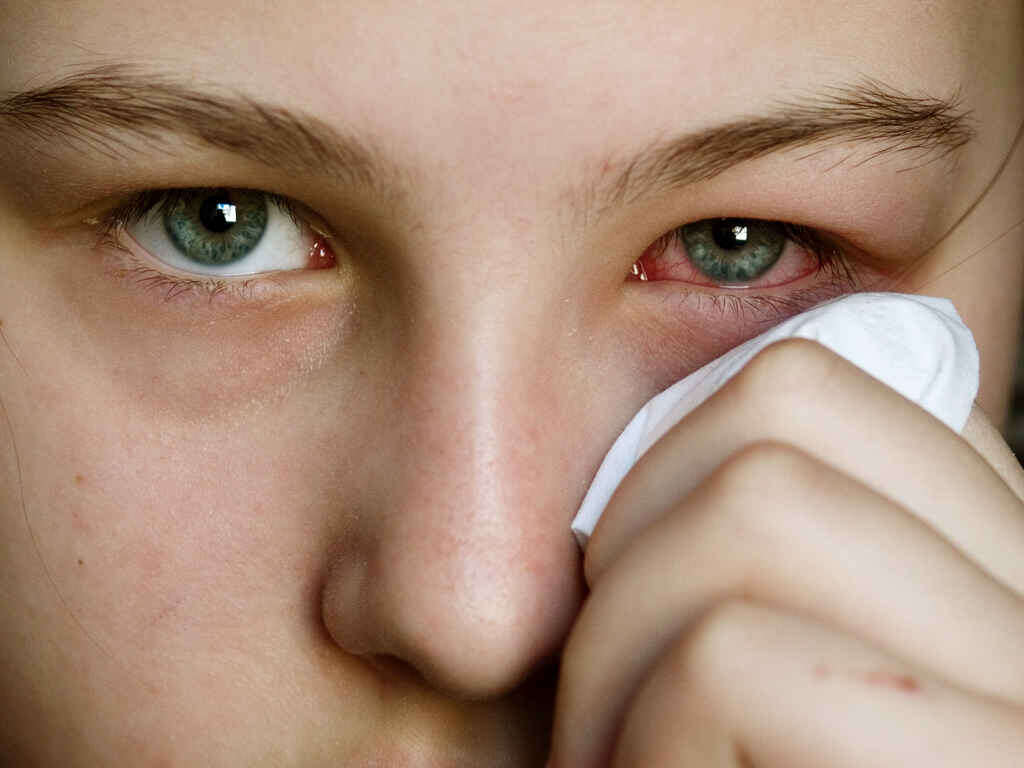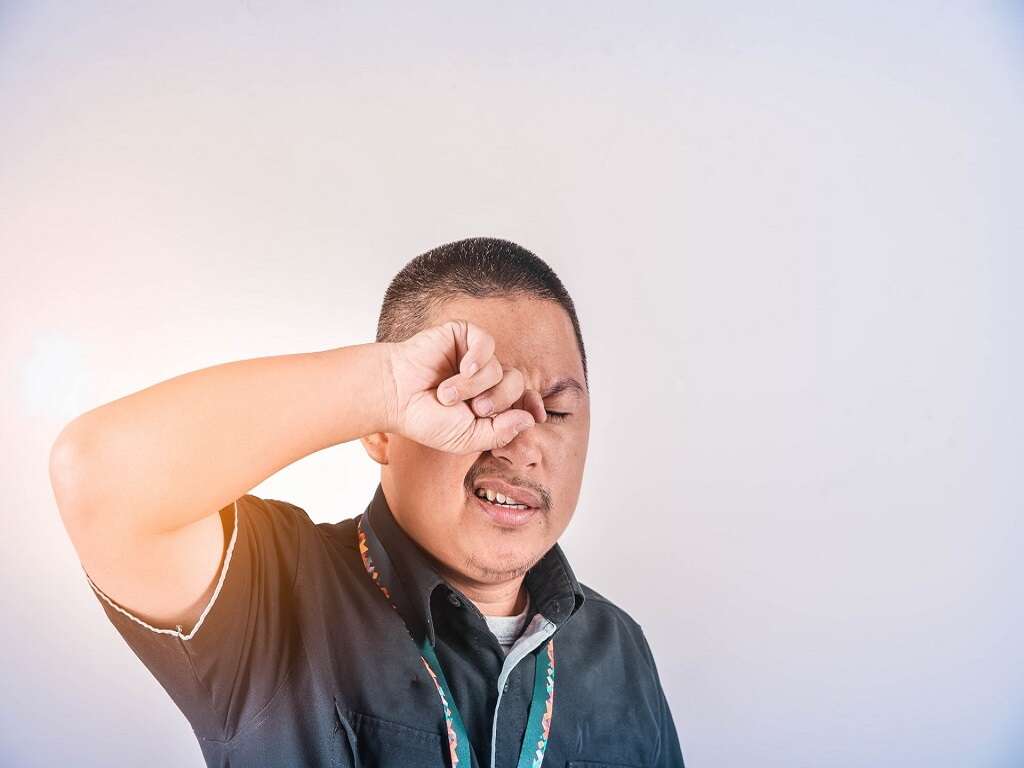Pink Eye Treatment FAQs
 Article Sources
Article Sources
- 1. 'Pink Eye (Conjunctivitis).' Mayo Clinic, Mayo Foundation for Medical Education and Research, 16 June 2020, www.mayoclinic.org/diseases-conditions/pink-eye/diagnosis-treatment/drc-20376360.
- 2. 'Treating Pink Eye (Conjunctivitis).' Centers for Disease Control and Prevention, Centers for Disease Control and Prevention, 4 Jan. 2019, www.cdc.gov/conjunctivitis/about/treatment.html.
- 3. 'When to Use Ice and When to Use Heat for Aches and Pains.' Beaumont Health, Beaumont Health, 3 June 2017, www.beaumont.org/health-wellness/blogs/when-to-use-ice-and-when-to-use-heat-for-aches-and-pains.
- 4. Kumar, Pramod. 'Gonorrhoea Presenting as Red Eye: Rare Case.' Indian Journal of Sexually Transmitted Diseases and AIDS, Medknow Publications & Media Pvt Ltd, Jan. 2012, www.ncbi.nlm.nih.gov/pmc/articles/PMC3326851.
- 5. 'Herpes Eye Disease.' Cedars-Sinai, 2021, www.cedars-sinai.org/health-library/diseases-and-conditions/h/herpes-eye-disease.html.
- 6. 'Pinkeye (Conjunctivitis) (for Teens) - Nemours KidsHealth.' Edited by Patricia Solo-Josephson, KidsHealth, The Nemours Foundation, June 2017, kidshealth.org/en/teens/conjunctivitis.html.
- 7. 'Eye - Allergy.' Seattle Children's Hospital, www.seattlechildrens.org/conditions/a-z/eye-allergy.
- 8. 'Pink Eye.' National Eye Institute, U.S. Department of Health and Human Services, www.nei.nih.gov/learn-about-eye-health/eye-conditions-and-diseases/pink-eye.
- 9. MD, Anne Sumers. 'Can I Use Redness Eye Drops with My Prescription Eye Drops for Conjunctivitis?' American Academy of Ophthalmology, 8 Mar. 2018, www.aao.org/eye-health/ask-ophthalmologist-q/redness-eye-drops-with-pink-eye-prescription-drops.
When a person has pink eye, their conjunctiva becomes inflamed. The person's eye appears pink or red because of swelling in the eye vessels. Pink eye could affect one or both eyes.
The eyes may feel itchy or become painful, and sometimes, pink eye causes a gritty feeling. The eyes may release a discharge that forms a crust over the person's eyes while they sleep. The crust makes it difficult for them to open their eyes when they wake up. Excess tearing is also possible.1‘Pink Eye (Conjunctivitis).’ Mayo Clinic, Mayo Foundation for Medical Education and Research, 16 June 2020, www.mayoclinic.org/diseases-conditions/pink-eye/diagnosis-treatment/drc-20376360. At-home treatments and medical intervention can help.
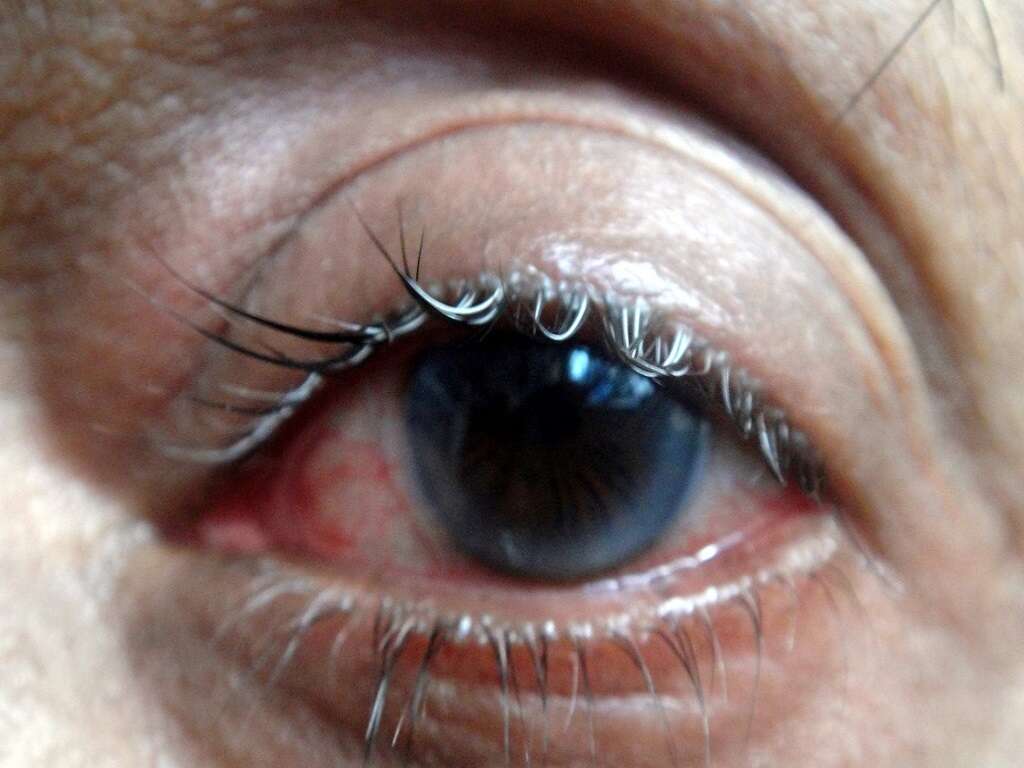
1. How Is Pink Eye Diagnosed?
A doctor discusses the patient's symptoms and asks when they started. The physician looks at the patient's eyes and may ask if they have allergies or if they've been around anyone with pink eye. Often, this is enough to diagnose the patient with pink eye and determine an appropriate treatment.
Further testing might be necessary if the practitioner suspects the condition is from a more serious type of bacteria, virus or sexually transmitted disease. If this is the case, the doctor collects a sample of the discharge and sends it to the lab for testing.1‘Pink Eye (Conjunctivitis).’ Mayo Clinic, Mayo Foundation for Medical Education and Research, 16 June 2020, www.mayoclinic.org/diseases-conditions/pink-eye/diagnosis-treatment/drc-20376360.
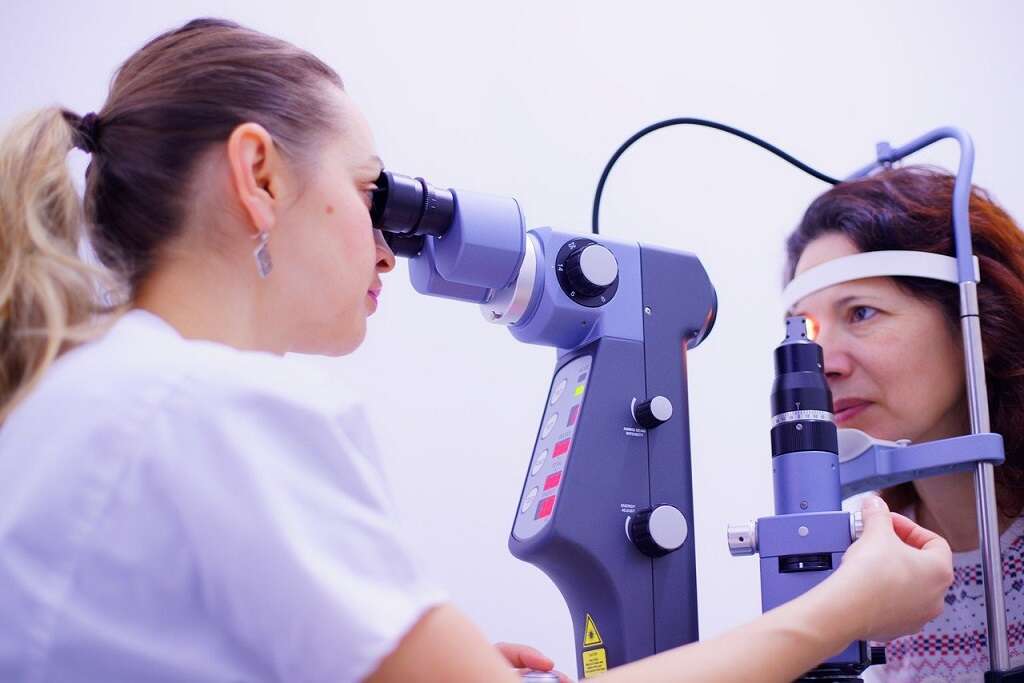
2. Are Antibiotics Prescribed for Pink Eye?
Physicians determine whether the pink eye is viral, bacterial or caused by allergies by assessing the severity. Typically, viral pink eye is less severe. The doctor may assess the patient's eye for discharge because discharge tends to only occur in bacterial infections.
Doctors may prescribe an antibiotic for pink eye if the underlying cause is thought to be bacterial. The medication is given as either a topical or an eye drop. The patient needs to take them as prescribed for a designated length of time.2‘Treating Pink Eye (Conjunctivitis).’ Centers for Disease Control and Prevention, Centers for Disease Control and Prevention, 4 Jan. 2019, www.cdc.gov/conjunctivitis/about/treatment.html.

3. Can Over-the-Counter Eye Drops Treat Pink Eye?
Over-the-counter eye drops may relieve symptoms of pink eye. They contain ingredients that hydrate and soothe irritated, dry eyes. However, they don't treat the cause of pink eye. People should consult with a doctor before mixing over-the-counter drops with prescription ones.
It's important to read the instructions carefully because certain eye drops aren't safe to use when an individual is wearing contacts. There are also limits to how often a person can use the eye drops each day.9MD, Anne Sumers. ‘Can I Use Redness Eye Drops with My Prescription Eye Drops for Conjunctivitis?’ American Academy of Ophthalmology, 8 Mar. 2018, www.aao.org/eye-health/ask-ophthalmologist-q/redness-eye-drops-with-pink-eye-prescription-drops.

4. Is it Okay to Wear Contacts??
If possible, people should remove their contacts and switch to glasses while undergoing treatment for pink eye because contacts further irritate already sensitive eyes. The patient can resume wearing contacts after completing treatment or once symptoms of pink eye subside.
Individuals should discard disposable contacts if they were wearing them when they had pink eye. Hard contacts used during the infection should be soaked thoroughly before using them again.1‘Pink Eye (Conjunctivitis).’ Mayo Clinic, Mayo Foundation for Medical Education and Research, 16 June 2020, www.mayoclinic.org/diseases-conditions/pink-eye/diagnosis-treatment/drc-20376360.

5. Is a Cold or Warm Compress Better?
Doctors often suggest using cool or warm compresses to ease discomfort. This may take experimentation to determine which temperature relieves discomfort.
A cool compress constricts blood vessels to ease swelling and discomfort, while a warm compress opens blood vessels and allows blood to flow more freely to the person's eyes. This aids in the healing process by bringing extra nutrients to the area through increased blood flow and helps relieve some of the pain.3‘When to Use Ice and When to Use Heat for Aches and Pains.’ Beaumont Health, Beaumont Health, 3 June 2017, www.beaumont.org/health-wellness/blogs/when-to-use-ice-and-when-to-use-heat-for-aches-and-pains.

6. How is an STD in the Eye Treated?
When a person has gonorrhea or chlamydia infections affecting their eye, doctors prescribe antibiotics that target the gonococcus bacteria or chlamydia trachomatis bacteria, respectively.4Kumar, Pramod. ‘Gonorrhoea Presenting as Red Eye: Rare Case.’ Indian Journal of Sexually Transmitted Diseases and AIDS, Medknow Publications & Media Pvt Ltd, Jan. 2012, www.ncbi.nlm.nih.gov/pmc/articles/PMC3326851.
Although it's rare, herpes can also spread to a person's eye if they touch their infected genitals or someone else's. The doctor may prescribe a topical antiviral or antiviral eye drops, and in some cases, physicians may prescribe an oral antiviral. Steroid eye drops may also be given to reduce swelling.5‘Herpes Eye Disease.’ Cedars-Sinai, 2021, www.cedars-sinai.org/health-library/diseases-and-conditions/h/herpes-eye-disease.html.
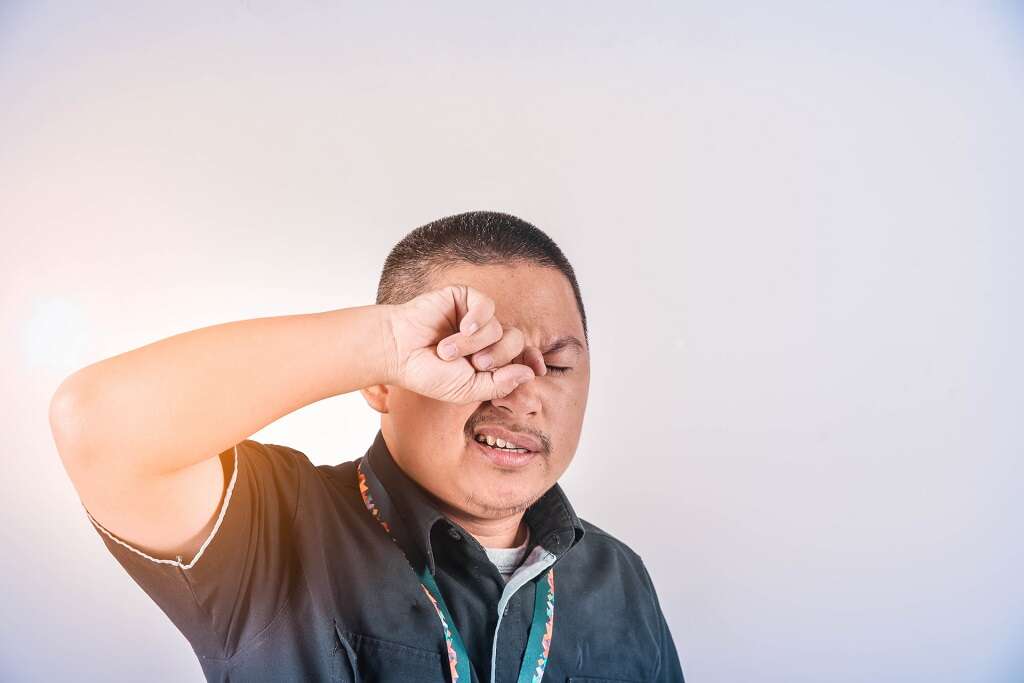
7. Is Pink Eye Contagious During Treatment?
Pink eye caused by a bacterial infection is contagious as soon as the symptoms appear. It remains communicable until the discharge stops. Patients are no longer contagious 24 hours after they start taking an antibiotic.
When pink eye stems from a virus, it's contagious as soon as symptoms begin and can spread until the symptoms subside. Pink eye can spread from one eye to the other and to other people.6‘Pinkeye (Conjunctivitis) (for Teens) - Nemours KidsHealth.’ Edited by Patricia Solo-Josephson, KidsHealth, The Nemours Foundation, June 2017, kidshealth.org/en/teens/conjunctivitis.html.

8. Can Oral Antihistamines Help with Pink Eye?
A person may take an oral antihistamine to relieve allergy symptoms affecting the eyes, including pink eye, itchiness, puffiness and redness. These medications are available over-the-counter and also help with nasal symptoms, such as a runny nose. Pink eye caused by allergies isn't contagious.
There are over-the-counter eye drops available that contain antihistamines and specifically target eye symptoms. Different brands and types of eye drops come with different instructions, so it's a good idea to read the dosing instructions carefully before use.7‘Eye - Allergy.’ Seattle Children’s Hospital, www.seattlechildrens.org/conditions/a-z/eye-allergy.
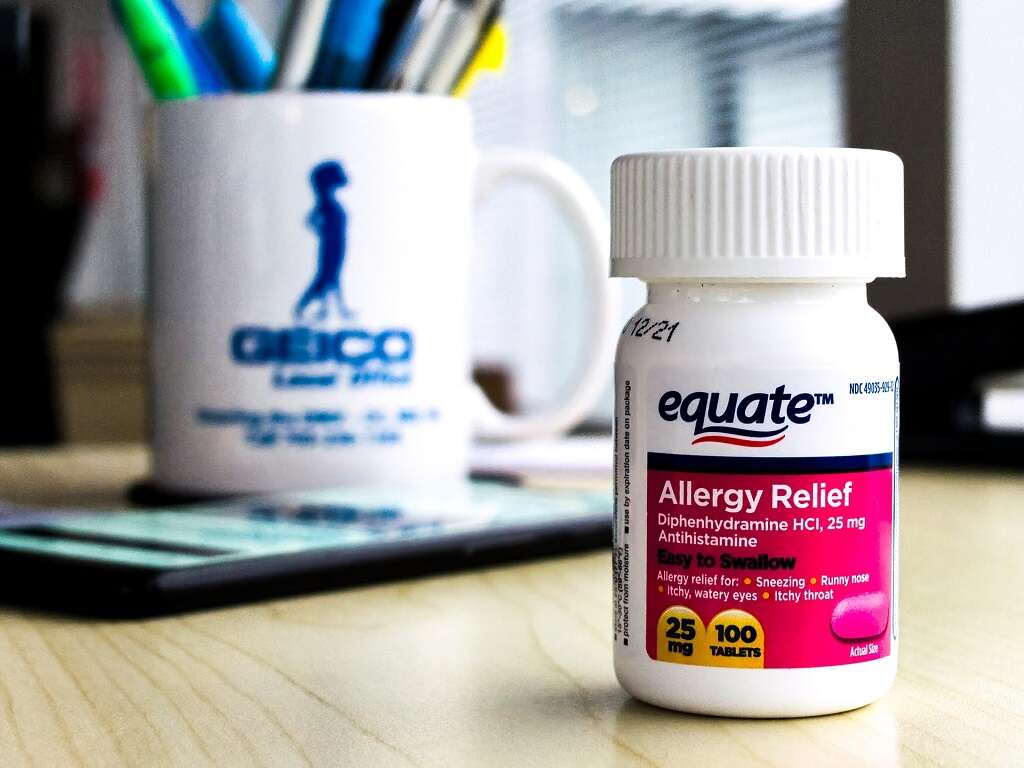
9. Can Over-the-Counter Eye Drops Help with Allergies?
Eye drops can effectively ease eye allergy symptoms. Standard eye drops that only lubricate a person's eyes may not help much because they're not targeting the source of the allergies.
People with allergy-related pink eye should opt for eye drops that contain an antihistamine. The antihistamine stops the histamine that a person's immune system releases when they come in contact with something they're allergic to. This can prevent a person's eyes from swelling or itching.7‘Eye - Allergy.’ Seattle Children’s Hospital, www.seattlechildrens.org/conditions/a-z/eye-allergy.
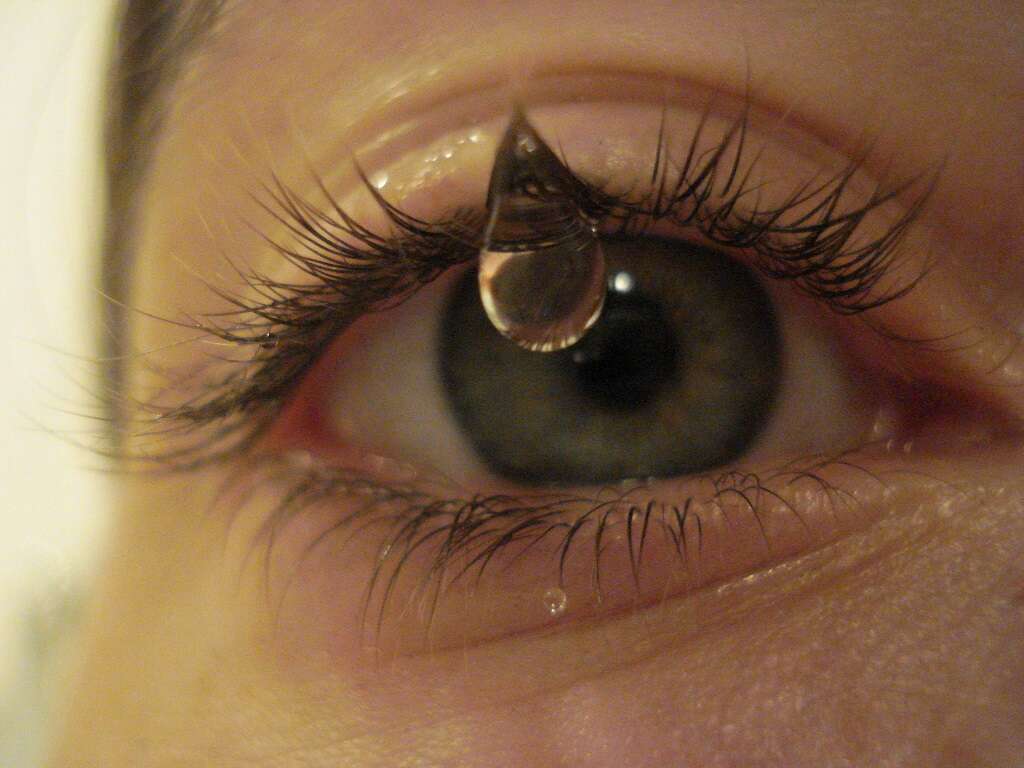
10. Can Pink Eye Recur?
After an individual completes their treatment, it's possible to get pink eye again. A person should wash their hands frequently and avoid touching their eyes until the infection is completely clear. They should also wash all towels and other linens that they used while they had the infection and throw out any makeup or contacts they may have used while infected.
Since people can catch pink eye again, they should avoid sharing linens and contacts. Frequent hand washing can also help.8‘Pink Eye.’ National Eye Institute, U.S. Department of Health and Human Services, www.nei.nih.gov/learn-about-eye-health/eye-conditions-and-diseases/pink-eye.



